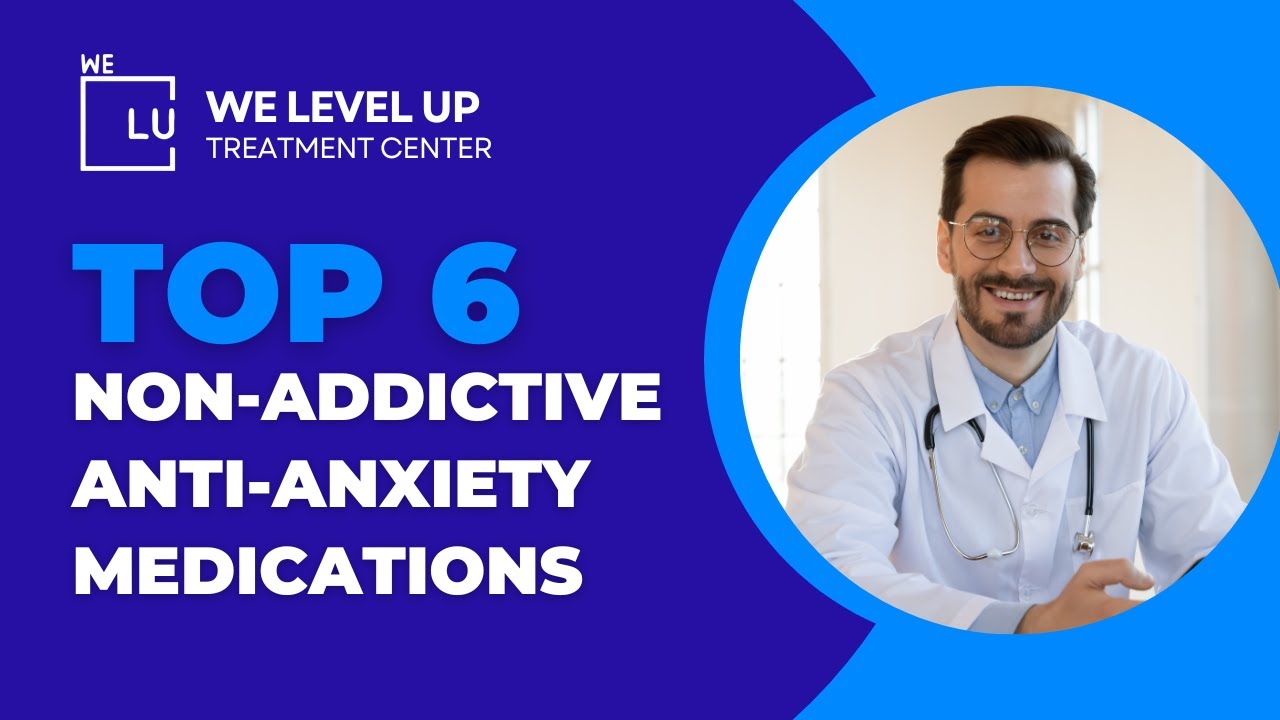What Do Anxiety Attacks Feel Like?
Imagine yourself standing on a stage, ready to give a presentation. Your stomach churns like a washing machine, and your heart does a tap dance against your ribs. Your breath quickens, and your palms feel tricky with sweat. This can be a peek into an anxiety attack.
Unlike a surprise quiz, anxiety attacks often build up. They’re like a pot of worry slowly steaming on the stove, fueled by thoughts of “what ifs” and “what could go wrong.” This worry can be about anything big or small, from a school test to a first date.
Understanding the causes, symptoms, and complications of anxiety is crucial for effective treatment. Anxiety attacks, often triggered by stress, involve not only emotional fear and worry but also physical manifestations. These episodes can occur even without a clear cause. They can cause physical symptoms, such as faster breathing, nausea, dizziness, and headaches.
Anxiety Link to Substance Abuse
The use of drugs or alcohol can contribute to the occurrence or exacerbation of anxiety attacks. For instance, according to the Substance Abuse and Mental Health Services Administration (SAMHSA), a study revealed that cocaine use can lead to heightened feelings of paranoia and anxiety attacks. [1]
Anxiety attacks are strongly connected with instances of substance abuse. Treating dual-diagnosis clients struggling with addiction and anxiety is a crucial aspect of the We Level Up Texas inpatient treatment center experience. Reclaim your life today! Call us 24/7 for a free consultation.
Facts About Anxiety
Anxiety attacks typically stem from a concern about a specific event or issue.
According to the National Institute of Mental Health, between 18 and 28% of individuals in the US have an anxiety disorder during any given year. Within this percentage of people with an anxiety disorder, there is a 33 to 45% occurrence rate for a co-existing alcohol and substance use disorder. [2]
Anxiety Attacks vs Panic Attacks
While anxiety and panic disorders can overlap, anxiety is different from panic attacks. Panic attacks involve sudden, intense episodes of fear, distress, and a sense of impending doom.
Symptoms of an Anxiety Attack
Anxiety attacks can disrupt your daily life. They may be disproportionate to real dangers and lead you to avoid certain places or situations. Here are the most common symptoms of anxiety attacks:
- Rapid heartbeat.
- Shortness of breath.
- Dizziness.
- Nausea.
- Headaches.
- Muscle tension.
- Trembling or shaking.
- Sweating.
- Chills or hot flashes.
- Chest pain or discomfort.
- Feeling detached or unreal.
- Fear of losing control or going crazy.
- Fear of dying.
- Numbness or tingling sensations.
- Difficulty swallowing.
If anxiety affects your life and relationships, consult your doctor to rule out any physical health issues before seeking mental health support. While therapy and medications are common, lifestyle changes and coping strategies can also help manage anxiety.
How to Deal with Anxiety Attacks?
Having occasional anxiety is normal, but those with anxiety disorders often face frequent, excessive fear, terror, and panic in everyday situations, negatively impacting their quality of life and normal functioning.
It’s crucial not to let anxiety attacks control you. Anxiety attacks always pass, and the symptoms are not indicative of harm. Instead of seeking distractions, ride out the attack, confront your fear, and remain in the situation until the anxiety subsides. Having someone with you during an anxiety attack can provide reassurance. As anxiety diminishes, focus on your surroundings and resume your activities.
Many individuals who struggle with anxiety attacks either seek clinical medication or self-medicate with alcohol or drugs. People who get prescriptions for their anxiety are less likely to develop substance use disorders, but often, the drugs that they get have high abuse potential, creating more risk.

Table of Contents
Learn More:
If you’re struggling with anxiety attacks and substance abuse, get treatment counseling that works. Start getting support with a free call to our mental health and addiction hotline.
Get Help. Get Better. Get Your Life Back.
Searching for Accredited Drug and Alcohol Rehab Centers Near You? We Level Up Texas Is Ready To Help!
Even if you have failed previously and relapsed, or are in the middle of a difficult crisis, we stand ready to support you. Our trusted behavioral health specialists will not give up on you. When you feel ready or just want someone to speak to about therapy alternatives to change your life call us. Even if we cannot assist you, we will lead you to wherever you can get support. There is no obligation. Call our network hotline today.
FREE Addiction Hotline – Call 24/7Tips on How to Calm Anxiety Attacks
The following strategies help to regulate your nervous system and bring your focus back to the present moment, alleviating the intensity of anxious feelings. Incorporating these techniques into your routine can contribute to better overall anxiety management.
Overcome the Signs of Anxiety Attacks with Deep Breathing
If you’re breathing fast during an anxiety attack, doing a breathing exercise can alleviate your symptoms. Try this technique:
- Inhale through your nose as slowly, deeply, and softly as possible.
- Exhale through your mouth slowly, deeply, and gently.
- Counting slowly from 1 to 5 with each inhalation and exhalation can also benefit you.
- Close your eyes and focus only on your breathing.
You should begin to feel better in a few minutes. Breathing problems are common and concerning symptoms of anxiety attacks. Learning breathing control techniques can be helpful during such moments.
How to Stop Anxiety Attacks with Grounding Techniques
Ask yourself, “Is there a real danger right now, or am I safe at home worrying about something that isn’t a threat?” This thinking can bring you back to the present moment, calming your mind and reducing anxiety attacks.
Here are the most popular and easy grounding techniques:
- 5-4-3-2-1 Method: Identify and name five things you can see, four things you can touch, three things you can hear, two things you can smell, and one thing you can taste.
- Grounding Object: Carry a small, comforting object in your pocket to touch and focus on during anxious moments.
- Mindful Observation: Observe and describe your surroundings in detail, focusing on colors, textures, and shapes.
- Body Scan: Systematically scan and relax each body part, starting from your toes and working your way up.
- Counting: Count slowly and deliberately, either out loud or in your mind, to redirect your focus.
- Lettering Exercise: Mentally or physically trace the outline of letters or words, bringing attention to the sensory experience.
- Breath Counting: Focus on counting each breath, allowing your breath to guide your attention away from anxious thoughts.
Positive Self-Talk
Positive self-talk or affirmations help instill a positive outlook, reinforcing that you can navigate challenges, ultimately reducing anxiety and fostering emotional balance. Examples of positive self-talk are:
- “I am in control of my thoughts and feelings, and I choose calmness over anxiety.”
- “I trust in my ability to handle challenging situations gracefully and resilient.”
- “I am safe, and this moment will pass. I am stronger than my anxiety.”
Consultation for Anxiety Attacks Symptoms
If anxiety is disrupting your daily life functioning or if someone experiences symptoms of anxiety disorder, you can consult a healthcare professional to explore coping methods and treatment options.
Relieving anxiety can be achieved through self-help, but when needed, psychotherapy and medication are the primary treatments for anxiety disorders. It’s time to consult a mental health professional if anxiety is constant, hinders daily activities, involves non-threatening concerns, or includes panic attacks.
Check your insurance coverage for mental health services, seek recommendations from your primary care doctor, or consult with We Level Up Texas rehab healthcare professionals. A thorough mental health examination determines opportunities for treatment. Meeting with mental health counselors and medical care providers means admission to behavioral therapy and medication treatment. Suitable treatment leads to change for better, more restorative living. This is all possible at our dual diagnosis rehab center in Texas.

Get Your Life Back
Find Hope & Recovery. Get Safe Comfortable Detox, Addiction Rehab & Dual Diagnosis High-Quality Care.
FREE Addiction Hotline – Call 24/7How Long Do Anxiety Attacks Last?
Anxiety attacks often last from a few minutes to 30 minutes. They will usually peak in 5 minutes or less. Of course, time slows down during an attack; your ten minutes may feel like an hour.
If anxiety attacks last for several hours or days, it could not be an anxiety or panic attack. It can be generalized anxiety disorder (GAD) or a high degree of anxiety. Also, someone can experience many panic or anxiety episodes in a quick back-to-back, and these attacks might linger much longer.
Effective Ways to Prevent Anxiety Attacks
Here are essential practices that can help you minimize the risk of anxiety attacks and foster a more balanced and tranquil mindset:
- Regular exercise.
- Stress management.
- Healthy lifestyle.
- Limit caffeine and alcohol.
- Establish routine.
- Seek support.
- Set realistic goals.
- Positive self-talk.
- Mindfulness practices.
- Limit news consumption.
As the substance abuse treatment community starts to acknowledge that addiction is itself a mental disorder, the relationship between substance abuse and mental disorders, including anxiety attacks, becomes more complex. Many treatment rehabs largely lack proper knowledge of dual-diagnosed conditions, so these illnesses are still treated individually or worse–not treated or diagnosed at all. Our dual diagnosis treatment center in Texas is one of the facilities with professionals trained to help treat co-occurring disorders. This type of tandem treatment provides high success rates.
The Connection Between Addiction and Anxiety Attacks
The root cause of substance abuse or alcoholism may have come about as a response to a mental health problem, such as anxiety. Without accurate diagnosis, many seek to control their conditions by self-medicating, using alcohol or tranquilizers for anxiety, amphetamines or cocaine for depression, etc.—and the short-term comfort or distraction makes the experiment look like a recovery. Self-medication can be repetitive, and the repetition can then lead to dependency, and an addiction can develop.
Furthermore, an individual relatively free from psychiatric illnesses can experiment with drugs and continue past “recreational use” to drug dependence. Then, a secondary mental disorder, such as anxiety, can emerge.
Untreated, these dual diagnosis problems can, in turn, worsen the ongoing drug abuse. Also, certain substances, like amphetamines and PCP, can cause psychotic attacks that may repeat themselves. The flashbacks from these drugs can be triggered by stress, even without any drugs.
Addressing anxiety attacks is crucial not only for identifying fundamental causes or triggers of substance abuse but also because physical dependence is implanted in biochemical imbalances, just as many psychiatric deficiencies are. Specific chemical imbalances in the brain might make some people more prone to addiction, and just relying on anxiety or behavioral therapy might not be enough to cure it.
If you’re seeking assistance with your rehab journey, reach out to a We Level Up Texas treatment professional today—your call is free and confidential.
First-Class Facilities & Amenities
World-Class High-Quality Addiction & Mental Health Rehabilitation Treatment
Rehab Centers TourRenowned Addiction Centers. Serene Private Facilities. Inpatient Rehab Programs Vary.
FREE Addiction Hotline – Call 24/7Proven recovery success experience, backed by a Team with History of:
15+
Years of Unified Experience
100s
5-Star Reviews Across Our Centers
10K
Recovery Success Stories Across Our Network
- Low Patient to Therapist Ratio
- Onsite Medical Detox Center
- Comprehensive Dual-Diagnosis Treatment
- Complimentary Family & Alumni Programs
- Coaching, Recovery & Personal Development Events
We Level Up Texas Dual Diagnosis Rehab Center for Anxiety Attacks and Addiction
The We Level Up Texas rehab professionals believe that if the patient can determine the underlying problem and treat it simultaneously with their addiction, the patient’s chances of a successful, relapse-free healing are much improved. Once we can recognize and adequately start treating the co-occurring issues with the dependency on alcohol or other drugs, individuals will be closer to long-term sobriety.
At We Level Up Texas rehab center, we do not believe that long-term healing comes in a one-size-fits-all program. Upon arrival at our dual diagnosis treatment center, each client will undergo a comprehensive physical and psychological assessment with our physicians, mental health specialists, health advisers, and nutritionists. Together, we will determine the client’s underlying issues, including anxiety disorders, so that we can plan an individualized approach and, when applicable, provide integrated dual diagnosis treatment. The symptoms of the multiple disorders that can occur alongside addiction can present complex and similar symptoms. Accurate diagnosis requires a highly trained professional team with years of experience.

Treating Both Mental Health and Addiction
While substance use disorders, once fully developed, become an insidious illness in the mind, it doesn’t begin that way. If we consider it, instead, as a symptom, we can trace it back to its roots. Substance abuse may have started as an antidote for esteem problems, for enhancing social status, or it may have originated from a need to self-medicate due to previous issues. Some of these roots are circumstantial, but some may be due to a pre-existing chemical imbalance in the brain.
Many psychiatric disorders, like alcohol use disorder or substance abuse, are better treated when you fully comprehend what you are suffering from. Understanding your anxiety attacks, PTSD, depression, and other disorders and their impacts on you goes a long way to realizing your own treatment needs.
While you probably seek to live a life free from the bonds of drug use, it may be required for some patients to use their prescriptions for certain mental disorders. These drugs are seldom addictive or high-inducing in their quality. These prescriptions may be needed to improve the quality of your life and drastically improve the chances of your long-term recovery. Many of the non-addictive anti-anxiety medications are SSRIs or antidepressants.
Accepting that you could have a mental disease might be difficult, but once it is correctly identified and addressed, treating the secondary drug addiction issue can be much more effective. Only a medical professional with the required training and experience can identify these underlying conditions.
Most dual diagnosis treatment programs begin with a medical detox process to remove the physical dependency on any drugs or alcohol, then a residency program. The inpatient program can last up to 30 days or two months and is designed to provide intensive, focused therapy in a controlled setting to help you manage your condition and give you the mechanisms necessary to overcome the cravings and temptations of everyday life.
Get a free rehab insurance check without any obligation. The result can help you explore several treatment options.
Top 6 Non-Addictive Anti-Anxiety Medications, Side Effects, and Things You Should Know | Informative Video
Start a New Life
Begin with a free call to an addiction & behavioral health treatment advisor. Learn more about our dual-diagnosis programs. The We Level Up treatment center network delivers recovery programs that vary by each treatment facility. Call to learn more.
- Personalized Care
- Caring Accountable Staff
- World-class Amenities
- Licensed & Accredited
- Renowned w/ 100s 5-Star Reviews
We’ll Call You
Search We Level Up Texas Recognizing Anxiety Attack, Detox Topics, and Resources
Sources
- The Key Substance Use and Mental Health Indicators in the United States: Results from the 2021 National Survey on Drug Use and Health – Substance Abuse and Mental Health Services Administration (SAMHSA)
- Substance Use and Co-Occurring Mental Disorders – National Institute of Mental Health (NIMH)
- Chand SP, Marwaha R. Anxiety. [Updated 2023 Apr 24]. In: StatPearls [Internet]. Treasure Island (FL): StatPearls Publishing; 2023 Jan-. Available from: https://www.ncbi.nlm.nih.gov/books/NBK470361/
- Ways to calm anxiety attack: Cackovic C, Nazir S, Marwaha R. Panic Disorder. [Updated 2023 Aug 6]. In: StatPearls [Internet]. Treasure Island (FL): StatPearls Publishing; 2023 Jan-. Available from: https://www.ncbi.nlm.nih.gov/books/NBK430973/ Related research to anxiety attack symptoms female and anxiety attack physical symptoms.
- Smith JP, Book SW. Anxiety and Substance Use Disorders: A Review. Psychiatr Times. 2008 Oct;25(10):19-23. PMID: 20640182; PMCID: PMC2904966. https://www.ncbi.nlm.nih.gov/pmc/articles/PMC2904966/
- Brady KT, Haynes LF, Hartwell KJ, Killeen TK. Substance use disorders and anxiety: a treatment challenge for social workers. Soc Work Public Health. 2013;28(3-4):407-23. Doi: 10.1080/19371918.2013.774675. PMID: 23731428; PMCID: PMC3775646. https://www.ncbi.nlm.nih.gov/pmc/articles/PMC3775646/
- Mental Health Conditions: Depression and Anxiety – Centers for Disease Control and Prevention (CDC) https://www.cdc.gov/tobacco/campaign/tips/diseases/depression-anxiety.html
- Can Using Drugs Help Me Deal With Anxiety and Depression? – National Institute on Drug Abuse (NIDA) Related article to What does an anxiety attack feel like? What is an anxiety attack? How to calm an anxiety attack? How to stop an anxiety attack? What causes anxiety attacks? What does anxiety attack feel like? & How to deal with anxiety attacks?
- Woody G. The Challenge of Dual Diagnosis. Alcohol Health Res World. 1996;20(2):76-80. PMID: 31798155; PMCID: PMC6876494. https://www.ncbi.nlm.nih.gov/pmc/articles/PMC6876494/







